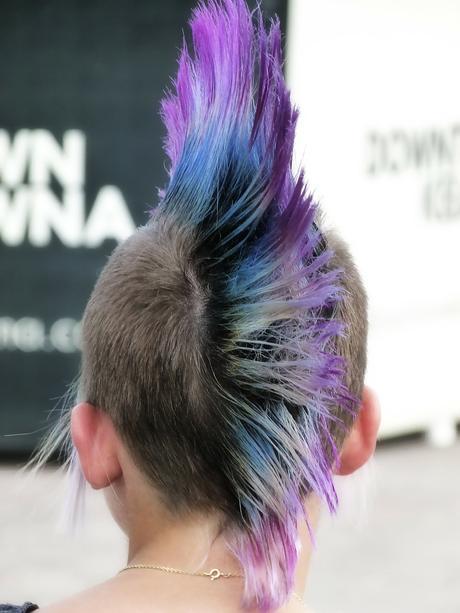
My style has nothing to do with my sexuality.
Apparently, if you cut off half of your hair, start playing rugby, spearhead a LGBTQA group on campus, begin obsessing over Orange is the New Black, and break up with your boyfriend all within the span of a year, people think you’re a lesbian. After each of these developments, I registered my mother’s raised eyebrows, my friends’ giggles, and questions like, “You know you look like a lesbian, right?”
Not that I expected any differently. I knew that my lifestyle (and style itself) was conforming to lesbian stereotypes every step of the way. I’d figured that out for myself after being hit on several times by other women (although, to be fair, half the social events I attended during college were hosted by LGBTQA groups or my rugby team). The fact that I kept talking about TV lesbian dramas and complimenting others’ tackling forms during these events probably helped, too.
But while I’d laugh off my friends’ comments at first, I found them less funny as they persisted. I should wear a dress, or grow my hair out, or wear makeup, they said.
Here’s the thing: I know that I look like a lesbian. I can check off every single box of the stereotype. But why does everyone seem to automatically assume that “looking like a lesbian” — whether you are one or not — is a bad thing, or one that must be fixed?
To be fair, I get where the association between one’s style and their sexuality comes from. There are plenty of times when people intentionally use style to serve as a signal for their identity — especially a “mating” signal. Peacocks show off their feathers, we show off our figures and facial symmetry.
But here’s the other thing: style isn’t always about looking f**able. Sometimes it’s about showing support for your favorite comic book character. Or there’s a large bleach stain on your T-shirt, so you make sure to layer it every time. Or you like rolling out of bed and running out the door, so long hair is a no-go. Maybe your balance is atrocious, so your shoes are always flat and have decent traction. Or maybe, just maybe, you’re displaying a part of yourself that has nothing to do with attracting a significant other based on heterosexist, stereotypical gender norms. Maybe you just want to look badass in a leather jacket and combat boots. Maybe you want to show that you’re original enough to shave half your head, just like every other hipster. I mean, you can’t let them show you up, right? (Hypothetically, you know.)
And what about said heterosexist gender stereotypes that dictate our assumptions about others’ appearance? Maybe most men do prefer long hair to straight hair, “natural” makeup, and (apparently) sundresses. But let’s back up here. None of these are definitive “men only like” statements. It’s not as if men completely reject short-haired women, or women with copious makeup, or women who only wear overalls.Everyone, regardless of their sexual orientation, has certain aesthetic preferences. No woman, heterosexual or not, should have to bend over backwards to alter their appearance to attract a certain “type” or partner. And if somebody really does have a non-negotiable preference that goes against your style, do you really want to be with them anyway?
Ultimately, I’ve found the misconceptions I’ve encountered as a heterosexual, cisgender woman mistaken for a lesbian reveal the persistent confusion that surrounds gender expression and sexual orientation. The Genderbread Person explains it better than I ever could, but the short version is: Just because I might be exhibiting more “masculine” traits, doesn’t automatically mean I’m attracted to females. The assumption that I would be is a common one. In fact, people are just now grasping that someone can be lesbian and feminine or gay and masculine. Because these variations in gender identity and expression threaten people’s preconceived categories, they often respond by enforcing closed-minded frameworks for trying to understand people’s behavior— like the idea that even in a same-sex relationship, there has to be a “man” and a “woman.” In reality, relationships aren’t created because people’s masculinity and femininity line up perfectly, but because their personalities do.
So, where does that leave me and other women who might be mis-labeled? Well, we could wear T-shirts declaring our sexual orientation. We could be more proactive about approaching those to whom we’re attracted, so our orientation (and desire) is hardly confusing. If you’re not comfortable with that, though, online dating advantageously allows you to explicitly list your sexual orientation. Plus, if you are heterosexual, there are more men than women who pay for online dating, so you have a wider range of choices. There’s gotta be a man that appreciates combat boots and short hair.
But I also personally don’t pin my happiness on that possibility. Instead, I’ve just decided to not give a damn about how others perceive my self-expression. I’ve come to believe that changing oneself should never be an option. We should never sacrifice our self-expression based on what someone else might prefer. That just means that they’re not worth it.
But that’s just my take. It’s ultimately your choice — just like your style.

